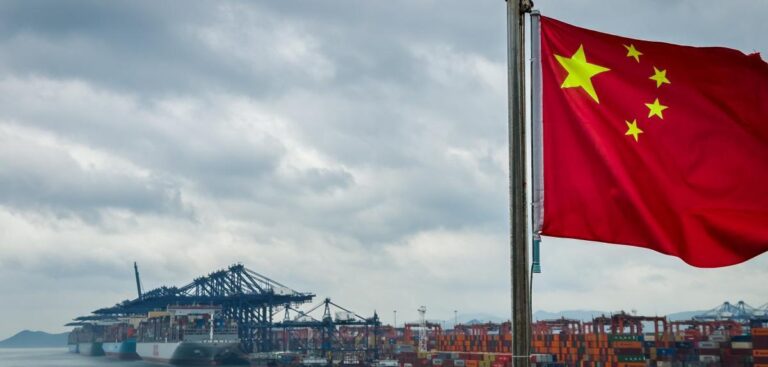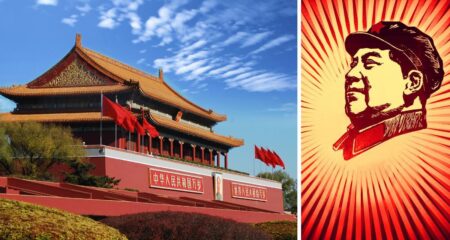Japan’s Former Defense Minister Ishiba to Tackle Regional Security Issues in the Philippines
In a pivotal diplomatic mission, Shigeru Ishiba, Japan’s former Defense Minister, is poised to engage with key regional security issues during his forthcoming trip to the Philippines. A primary focus of his discussions will be the intensifying Chinese assertiveness in the disputed territories of the East and South China Seas—a matter that has raised alarms among Southeast Asian nations and their allies. Moreover,Ishiba is anticipated to examine the ramifications of recent U.S. tariffs on imports, a development that has sent ripples through regional economies and could alter trade relationships significantly. As maritime tensions escalate and trade dynamics evolve,policymakers and analysts will closely monitor Ishiba’s strategic insights as they underscore Japan’s crucial role in fostering both security and economic stability within the Asia-Pacific region.
Confronting Marine Territorial Disputes in Asia
The rising tensions surrounding territorial claims in the East and South China Seas have compelled Shigeru Ishiba to adopt an active approach during his visit to Manila. With China’s aggressive maneuvers increasingly challenging established boundaries, he aims to initiate vital conversations focused on enhancing regional security frameworks. Key discussion points include:
- Collaborative Military Drills: Strengthening trilateral partnerships between Japan, the United States, and the Philippines.
- Maritime Security Initiatives: Developing strategies to combat illegal maritime activities.
- Diplomatic engagements: Fostering dialog with Southeast Asian countries regarding shared concerns.
Ishiba will also address economic challenges stemming from U.S. tariffs affecting Philippine exports while evaluating their impact on trade relations within the region. This visit seeks not only to bolster defense collaborations but also emphasizes maintaining economic stability across Asia. Delegates from both Japanese and Philippine governments are expected to explore strategies aimed at:
- Reducing Trade Barriers: Identifying sectors most affected by U.S. tariffs while devising effective solutions.
- Pursuing Investment Opportunities: Encouraging bilateral investments for enhanced economic resilience.
- cultivating Supply Chain Robustness: Collaborating on supply chain strategies that minimize disruptions across regions.
Analyzing US Tariffs’ Impact on Philippine Trade Relations
The recent introduction of tariffs by the United States has triggered notable shifts within Philippine trade relations,prompting stakeholders across various sectors to reevaluate their approaches strategically. As it navigates these economic hurdles, critical export industries such as Agriculture, , and are experiencing heightened pressure due to increased costs associated with these tariffs aimed at safeguarding American industries—potentially stunting growth for Filipino exports.
Business leaders express concern over diminished competitiveness in global markets; thus there is an urgent call for government action towards exploring option trading partnerships while bolstering domestic production capabilities against these challenges.
This scenario underscores an urgent need for discussions centered around/regional collaboration and/trade diversification to mitigate adverse effects stemming from U.S.tarrifs . The Philippines can capitalize on its relationships with other ASEAN members by pursuing new trade agreements designed specifically as buffers against tariff impacts . Companies are encouraged toward innovation alongside quality improvements ensuring sustained market presence . Additionally , stakeholders advocate for government policies supporting local businesses adapting effectively amidst increasing competition globally .
Strategic Diplomatic Approaches Amidst Security & Economic Challenges
The escalating situation resulting from China’s assertive actions concerning disputed maritime areas combined with repercussions arising from U.S.tariffs necessitates proactive measures among diplomatic entities—especially Japan—to navigate this complex landscape effectively . Engaging multilateral dialogues involving nations impacted by Chinese maneuvers can foster unity , creating a consolidated front against perceived threats . Japan could lead initiatives promoting collective maritime security efforts encouraging participation through joint military exercises thereby reinforcing defense capabilities throughout affected countries ensuring support exists regarding sovereignty claims.
Moreover advocating international legal frameworks via organizations like United Nations strengthens rules-based orders governing marine rights further solidifying alliances formed around shared interests.
Beyond addressing security concerns , engaging economically remains equally vital within Japanese diplomacy efforts moving forward ; advocating diversified supply chains less reliant upon Chinese exports allows collaboration amongst ASEAN partners promoting beneficial regional agreements enhancing overall resilience economically speaking too! Diplomacy should prioritize tackling negative consequences linked directly back towards US tariff implementations identifying potential avenues ripe for cooperation innovatively crafting policies advantageous collectively benefiting all involved parties alike! Strategic dialogues may encompass :
| Focus Area | Proposed Actions |
|---|---|
| Security Collaboration < | Establish Maritime Exercises & Joint Task Forces |
| Economic Diversification> < | /Promote Regional Trade agreements Within ASEAN> > < |
| /Legal Frameworks> < | /Enhance UN Discussions Regarding Maritime Law> > > Final ThoughtsAs Shigeru Ishiba prepares for meaningful discussions during his upcoming visit focused primarily upon rising tensions related specifically towards Chinese activities occurring within contested waters alongside implications tied directly back towards US tariff implementations impacting overall stability regionally speaking; this diplomatic engagement highlights intricate geopolitical interconnections present throughout Asia where matters surrounding territorial sovereignty intertwine seamlessly alongside broader economic policy considerations influencing outcomes potentially reverberating far beyond just bilateral ties between Japan & The Philippines alone but extending outward into larger frameworks encompassing alliances/security arrangements existing presently throughout entire Asia-Pacific area altogether! With evolving circumstances unfolding rapidly ahead all eyes remain fixed firmly upon how effectively Ishiaba navigates these multifaceted challenges presented amid growing uncertainties ahead! | . . .




